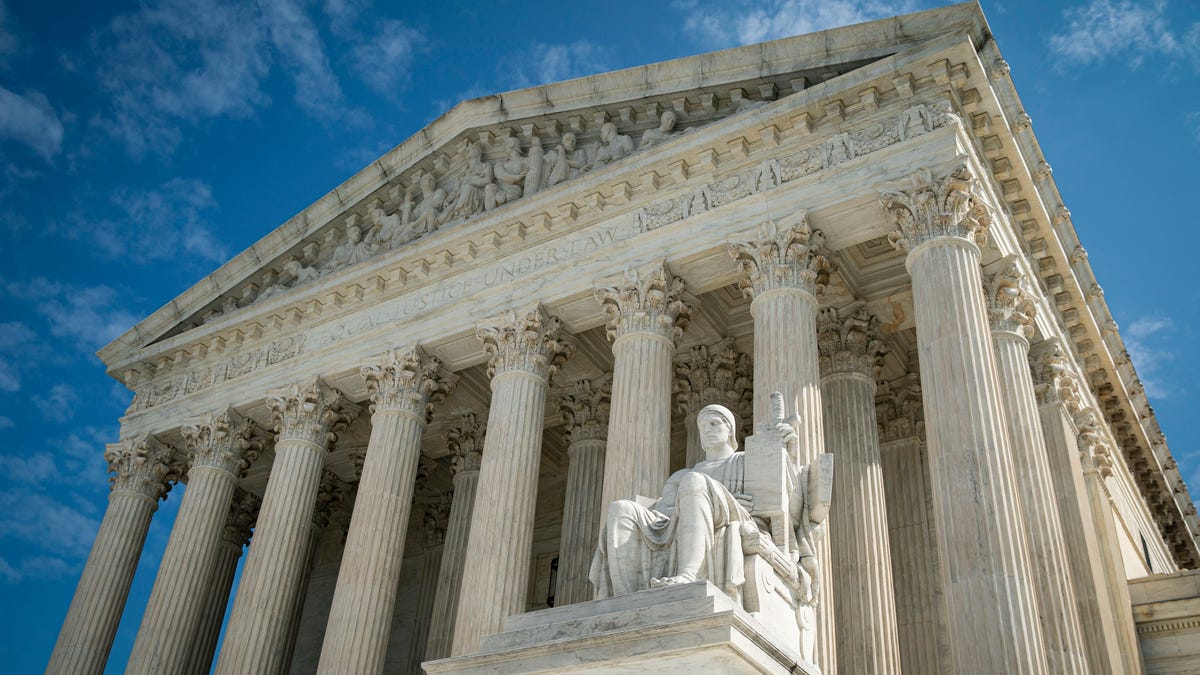Tech Groups Urge Supreme Court to Block Texas Social Media Law
A pair of industry groups representing companies like Google and Meta want the law put on hold again till it can make its way through the lower courts.

The US Supreme Court.
Two lobbying groups for Big Tech companies like Google, Meta and Twitter have asked the US Supreme Court to block a Texas law that prohibits large social media sites from banning users or removing posts based on political viewpoints.
NetChoice and the Computer & Communications Industry Association filed an application with the court on Friday for an emergency stay of the law, which lets site users or Texas' attorney general sue companies when posts are taken down. The law went into effect Wednesday after a federal appeals court lifted an earlier injunction against it. The lobbying groups want the law to be blocked again until appeals can wind their way through lower courts.
In their filing, the lobbying groups say the law prevents social media sites from "engaging in any viewpoint-based editorial discretion" and would "compel platforms to disseminate all sorts of objectionable" content, including terrorist propaganda, hate speech and posts that put children's health at risk. They also say the law would "fundamentally transform" these sites' business models and services.
Supporters of the law, which was sponsored by Republicans and signed in September by GOP Gov. Greg Abbott, contend that social media and other tech companies engage in political censorship, a notion that's been put forward by conservatives for several years. The companies have repeatedly denied the assertion. They say instead that they take action against users and posts that violate policies meant to protect public safety, prevent real-world violence and fight disinformation, among other things.
The judge who issued the earlier injunction against the law said social media companies have a First Amendment right to moderate content on their platforms. The decision by the federal appeals court that lifted that injunction on Wednesday was published without the court's reasoning, something the lobbying groups call out in their Friday filing.
"This one-sentence order explains nothing," says the filing, and thus "undermines the orderly appellate process" and hampers careful review.
In June, a federal judge blocked a Florida law from taking effect that would have allowed the state to punish social media companies for banning politicians or political candidates from their platforms. The judge in that case found the law's prohibition on "deplatforming" may violate companies' free speech rights and said that the legislation on the whole is "viewpoint-based."
Friday's request for a stay on the Texas law was made with Supreme Court Justice Samuel Alito, who can rule on his own or refer it to the full court.
Read more: Why the First Amendment Can't Protect Trump on Facebook or Twitter

